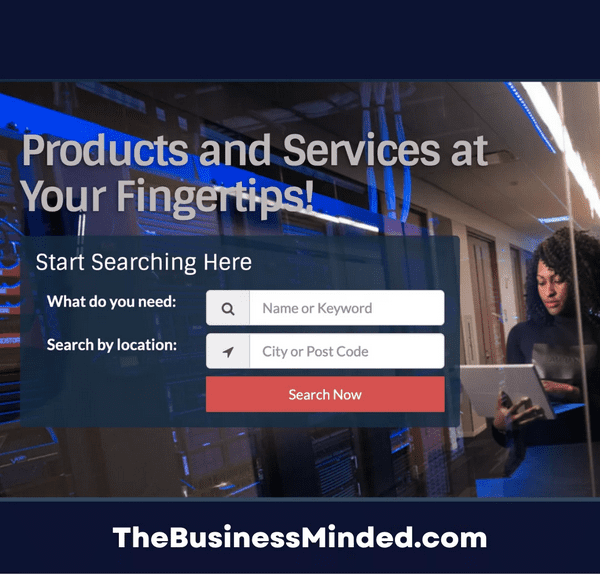The modern workplace is more competitive and challenging than it ever was. Some might argue that our forefathers had a more difficult time toiling it out in front of coal engines, but today’s contemporary workplace requires both hard labor and soft skills. Employers prioritize soft skills at the time of hiring today and may be willing to compromise on hard skills if a recruit fits well within the organization’s culture and carries the soft skills they require.
Before we begin, here’s a handy table of contents. Skip ahead to whichever topic you like!
What are Soft Skills?
To those who aren’t yet aware of them, soft skills are the behaviors, interpersonal skills, and personality traits that employees use to interact with clients, other team members, and people in general. When looked through the context and lens of the workplace, these soft skills represent your aptitude for working together with other people harmoniously and cater to client requirements in a stable manner.
With a greater focus on communication and collaboration today, employers want employees to display soft skills and maintain effective communication with other team members. However, there is a general soft skill gap between what employers expect and what employees can offer. A recent survey by the Society of Human Resource and Management (SHRM) in 2019 found that soft skills rank among the top three skills that employees believe are missing among job applicants.
Unlike hard skills, soft skills aren’t usually tied to a specific role or profession. These skills relate to our behavior in communication and our personalities in general. Particular jobs require a more harmonious and accurate display of soft skills, while others can live without perfecting them.
While soft skills happen to be less tangible than other complex skills, they can still be learned and acquired through systematic and consistent learning. Employers do tend to value qualifications that accredit your soft skills.
Some fundamental soft skills that employees may require in the workplace today include collaboration, creativity, emotional intelligence, and persuasion. But before we jump into what these skills mean and how they matter, let us first look at why precisely soft skills matter.
Why Are Soft Skills Important?
Soft skills are vital for organizations. Encouraging team members to get the best results, communicating effectively even when under high stress, and working collaboratively with others in a remote or virtual environment are soft skills that are of high importance to organizations today.
Fifty-seven percent of senior leaders in a 2018 LinkedIn survey mentioned that soft skills are more important than traditional hard skills.
Even during the COVID-19 pandemic and the resulting lockdown, employees with good soft skills were an asset for organizations, partially because of how they helped communicate with stakeholders.
Soft skills also contain all abilities and skills that are not easily replicated by artificial Intelligence. While artificial intelligence can perform several traditional roles, the technology does not stand a chance against the soft skills displayed by humans.
By understanding soft skills, women employees in the corporate setup can improve their resumes and even strengthen their opportunities of getting an excellent job in the industry. These skills are beneficial and will open new doors of options for you.
Employers today prioritize soft skills to such an extent that almost 57 percent of senior leaders in a 2018 LinkedIn survey mentioned that they thought soft skills were more important than traditional hard skills. The importance of soft skills was identified as the versatility and the professional growth they helped achieve.
Below, we mention why soft skills are essential today and should be developed by you.
Hard Skills Aren’t Useful without Soft Skills.
In most jobs and opportunities today, your technical skills wouldn’t amount to much by themselves. If you want your hard skills to be efficient, you have to compliment them with a good set of soft skills. For example, a salesperson with excellent knowledge of the product they sell and the market they sell to would not close as many deals if they aren’t well versed with their interpersonal skills. A business manager shouldn’t just focus on their industry knowledge and expertise but should also think creatively, communicate effectively, and should show emotional Intelligence in their leadership.
Soft Skills are Harder to Acquire
Hard skills aren’t necessarily hard to build. They can be taught through training and perfected over time. However, when it comes to soft skills, many employees face difficulties in perfecting them. Since these skills aren’t entirely linked with expertise or knowledge, they are dependent on an individual’s character traits. Therefore, it takes conscious effort and commitment to develop soft skills and perfect them over time.
Modern Workplaces are Interpersonal
The modern workplace focuses more on presentation, communication with team members, collaboration with others, listening to ideas, etc. Soft skills ensure a collaborative work environment with healthy communication between employees. These attributes eventually build a positive work culture and help the workplace become harmonious.
Customers Prefer Soft Skills
Customers do want hard skills. They want the hardware support technician sent for repairs in their IT kit to know what they are doing. However, what they prioritize even more than that is an expert technician that communicates well and listens to them. Customer service is a crucial business function today, and businesses looking to improve their measures here want people with good soft skills.
Soft Skills are the Future
The rapid speed of innovation and AI improvements mean that a more significant proportion of human jobs of the future will rely on soft skills. Tasks that require manual labor or hard skills are declining, making soft skills the differentiator of the future. A recent study by Deloitte predicted that two-thirds of all future jobs would rely on soft skills more than hard skills.
Below, we mention some of the soft skills you should develop and how you can follow them to master them.
The Most Important Soft Skills
Creativity
What is Creativity?
According to a survey conducted by LinkedIn in 2019, creativity is by far the most critical and strategic soft skill required within the workplace today. Unfortunately, most people confuse creativity with art and a craft that only designers and artists can show in their work. However, creativity is not limited to one industry or one line of work.
Creativity is all about innovatively looking at things and finding solutions out of the box and haven’t been considered by anyone else yet. With the growing monotony and repetition in the workplace, creative employees can think of ways to break the strut and think creatively are valued by organizations. Creative employees do not just complete what is required of them but also develop ways to improve the entire process itself.
How to become Creative
Creativity is something that you can learn to do by taking up unorthodox options and following innovative solutions. Simple techniques such as keeping an open mind during stressful situations and coming up with ideas when handling complex tasks can help you become creative.
You can also practice mind mapping, role-playing, and other creative measures of the sort to help inspire your creative side. Start with baby steps and try to solve daily problems in different ways. Think of new ways to approach a problem at work or your daily routine. Experiment with options and see which one best improves the process.
Emotional Intelligence
What is Emotional Intelligence?
Emotional Intelligence, also known as EQ, is a necessary soft skill for the modern workplace today. This soft skill is all about controlling and managing your own emotions, as you recognize the feelings of other team members and employees around you and empathize with them. Emotional Intelligence is an empathetic response that helps you put yourself in other’s shoes and look at situations from their perspective.
Emotional Intelligence is a highly sought-after skill in the workplace today. EQ is prioritized in stressful roles where a manager or employee must stay calm and collected. Employees that show high EQ levels will be able to display the right emotions and also understand the feelings of others around them to maintain productive and harmonious relationships.
How to Become Emotionally Intelligent
Most people may be clueless when it comes to building their emotional Intelligence. Key facets of this soft skill, such as self-awareness and empathy, are innate qualities. However, you can develop these qualities with practice and time.
For instance, you can take a negative experience, where you let your emotions get the better of you at work, as a starting point. Find out how your flaws in emotional Intelligence affected the overall outcome. Self-awareness and reflection are starting points for EQ and will help push you on the right path.
Communication
What are Communication Skills?
Effective communication is a necessary soft skill in the workplace, based on an individual’s ability to converse with others around them and reach practical solutions. Individual employees can increase their productivity levels if they can speak to other team members and listen to their pain points. Teamwork is often based on good communication, so if you’ve aced this, you’ve pretty much found a way to work with teams.
Successful communication is focused on verbal and nonverbal cues, including active listening and writing skills as well.
How to Communicate Better
Communication skills are necessary for most jobs and are essential in our day-to-day functions. You can increase the efficiency of your communication by focusing on the basics, such as simplifying the content within your message, changing your body language, improving your listening skills, and others of the sort.
Adaptability
What is Adaptability?
Adaptability is another necessary soft skill that relates to the flexibility shown by employees when it comes to embracing and accepting change. Challenges and changes are part of the workplace culture today, and as adaptable employees, we should welcome them with open arms.
We face challenges in our daily work-life, but employees with an adaptable nature can adjust well to the complexities. Adaptability comes in handy during change management as well, where flexible employees act as thought leaders.
How to be More Adaptable?
Adaptability usually means being more curious, flexible, and resourceful. Acquiring these skills may take some time but will soon become a part of your skillset. You can also lookup to managers or colleagues you feel are incredibly adaptive and guide you here. Replicate their routines and take note of their behaviors.
Critical Thinking
What is Critical Thinking?
Critical thinking is an essential soft skill required in the workplace. This soft skill pertains to your ability to analyze information quickly and reason in context to it. As managers and employees, we always have to be on our toes and process critical information quickly, and find the most logical answers from it by extracting value.
Critical thinking is a prevalent soft skill because it helps improve other soft skills. For instance, if you’re good at critical thinking, you will save time and improve your overall time management skills.
How to be Better at Critical Thinking
The first step to becoming better at critical thinking is reaching more robust and detailed solutions when presented with a problem or some information. You can get more critical answers by asking questions, exploring all facets of the problem, and not falling for the face value of the data. Your rigorous evaluation techniques will help you master the method of critical thinking and make better decisions.
Our Final Suggestion
Soft skills aren’t just about landing a decent job or impressing your employer; instead, they are about doing work efficiently and, dare we say, even enjoyably. These skills may seem simple but require consistent practice. Push yourself to go deeper and learn more because soft skills are the future.






